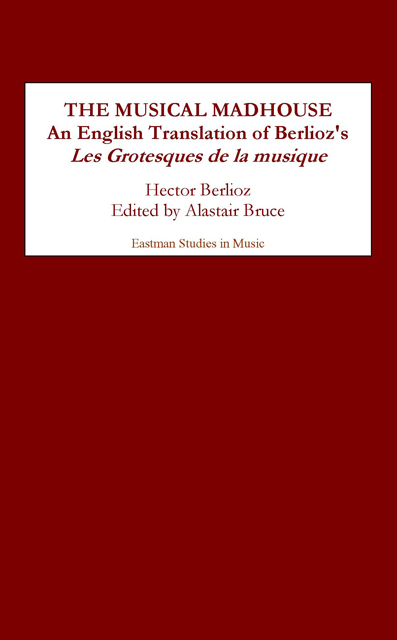Musical instruments at the Universal Exhibition
Published online by Cambridge University Press: 21 March 2023
Summary
I have absolutely no intention of writing a preamble on industry and Universal Exhibitions. There are some matters on which one can’t put forward any hypothesis without laying oneself open to serious risk; and discussing them amounts to sheer ostentation. I realise I’m far from possessing the Olympian calm needed in such circumstances, so instead of attacking systems I find shocking, my understandable despair and frustration often lead me to the other extreme of seeming to accept and approve of them in my mind, if not in what I say or write.
This reminds me of a question I once asked an amateur chemist. Perhaps this amateur, like amateur musicians and philosophers, and indeed many amateurs of every sort, believed in the absurd. Such a belief is widely held. Perhaps, after all, reality is absurd; otherwise it would be cruel of God to have put such a love of absurdity in men’s hearts. Anyway, back to my question to the chemist, and his reply.
“Suppose”, I said, “you could put a quantity of gunpowder, a hundred kilograms, say, or even a thousand, right at the heart of one of the world’s largest mountains, one of the Himalayas, for example, or Chimborazo; if you then ignited it by one of the techniques available nowadays, what would happen? Would it explode, do you think, and would it have sufficient force to blow up such a huge mass, with its enormous density and weight?”
The amateur chemist, taken by surprise, thought for a moment, which is something amateur musicians or philosophers rarely do, then replied hesitantly: “In all probability the gunpowder would not be powerful enough; but it would ignite, of course, and instantaneously produce gases which would be prevented from blowing up by the mass of the mountain. These gases would condense into liquid form, liable at any time to revert to gas and produce a terrific explosion the instant the pressure from above was released.” I don’t know how correct this dilettante scientist’s theory is, but the proposition I put to him may be relevant to my theme.
There are some people, including acquaintances of my own, who, as a result of having to struggle with a mountain of absurdities, experience within themselves a rage that is immeasurable, but not enough to blow up the mountain.
- Type
- Chapter
- Information
- The Musical MadhouseAn English Translation of Berlioz's <i>Les Grotesques de la musique</i>, pp. 25 - 34Publisher: Boydell & BrewerPrint publication year: 2003



